India provokes, Pakistan warns A view from Baku
A new wave of tension has erupted between two nuclear powers – India and Pakistan. Global media outlets report that Indian Prime Minister Narendra Modi has granted the country’s military full authority to determine the method, objectives, and timing of a response to the April 22 terrorist attack in Pahalgam (Jammu and Kashmir), which New Delhi has blamed on Pakistan.
Paradoxically, the accusation came just 30 (!) minutes after the tragedy, without clear, definitive, or specific evidence – none of which has been made public to this day.
Against this backdrop, Pakistani Prime Minister Shehbaz Sharif expressed his country's readiness to participate in any "neutral and transparent" investigation into the terrorist attack, while accusing India of levelling "unfounded allegations and claims" against Islamabad.
As Pakistan’s Defence Minister Khawaja Asif put it, blaming Pakistan for the tragedy is “easy,” but Islamabad had absolutely nothing to do with it, viewing the incident instead as an “internal uprising against the Indian government.”
At the same time, Pakistani authorities have pointed to intelligence suggesting that India may be planning a military strike on Pakistani territory in the near future. They emphasise that the baseless accusation of Islamabad’s involvement in the attack is likely to be used as a “false pretext” for such an action. However, the Pakistani defence chief warned that “any act of aggression against our country will meet with a resolute response, and India will bear full responsibility for any serious consequences in the region!”
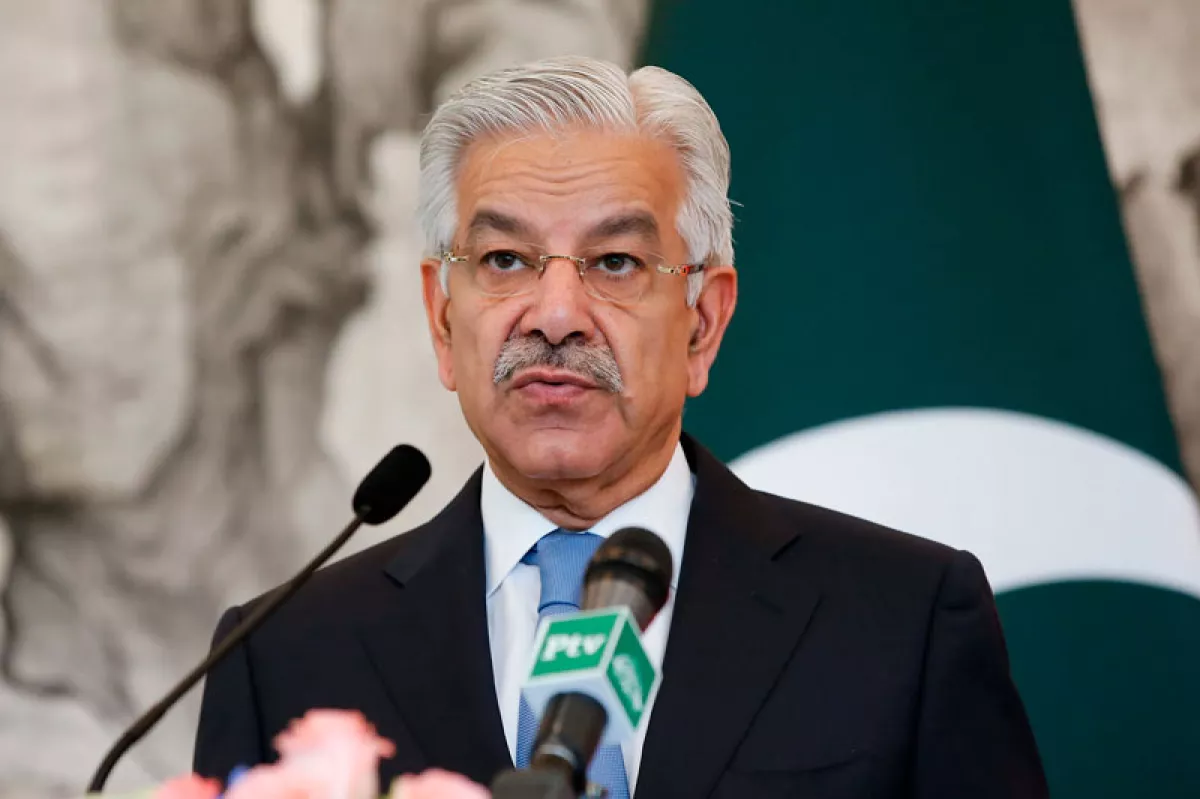
In light of the nature of the recent terrorist attack, analysts emphasise that such events—clearly bearing not just a local but serious geopolitical dimension—may conceal certain nuances behind their outward appearance. In particular, a number of experts are increasingly pointing to a water-related angle in the unfolding developments.
As evidence, they cite India’s official announcement on April 24 of its decision to suspend the 1960 Indus Waters Treaty with Islamabad, an agreement brokered by the World Bank. Under this treaty, India was granted (with minor exceptions) exclusive rights to the use of all eastern rivers and their tributaries before they enter Pakistani territory, while Pakistan received exclusive rights to the western rivers and a one-time financial compensation for the loss of access to eastern waters.
India's suspension of the 1960 treaty is unprecedented, as the agreement had remained in force even during periods of heightened conflict between the two countries. This move—blocking the flow of the Indus River by shutting all four sluice gates—has been placed on par with other aggressive actions by New Delhi, including the expulsion of diplomats and the closure of the only land border crossing between the two nations.
However, it is India’s refusal to honour the treaty that has become the most critical issue for Pakistan, whose agriculture sector depends heavily—up to 80%—on the waters of the Indus basin. In response, Islamabad declared that any breach of the treaty would be considered “an act of war.”
In connection with the water-related dimension of the terrorist attack, media outlets have drawn attention to data dating back to 2013, which warned that by 2025, two-thirds of the world’s population would face drinking water shortages. At the time, it was reported that over 1 billion people lacked access to clean drinking water, with India cited as a prominent example of a country already experiencing water scarcity.
Specifically, India—home to 17% of the global population and growing by 18 million people annually—possesses only 4% of the world’s freshwater resources. A 2018 report by the National Institution for Transforming India (NITI Aayog) noted that nearly 600 million Indians—almost half the country’s population at the time—were already facing water stress. The same report projected that water demand would eventually double the available supply, potentially reducing India’s GDP by up to 6%.
This dire outlook was echoed again in the summer of 2024, when credit rating agency Moody’s warned that India’s water scarcity could undermine its credit profile and trigger social unrest if disruptions occur in the agricultural and industrial sectors.
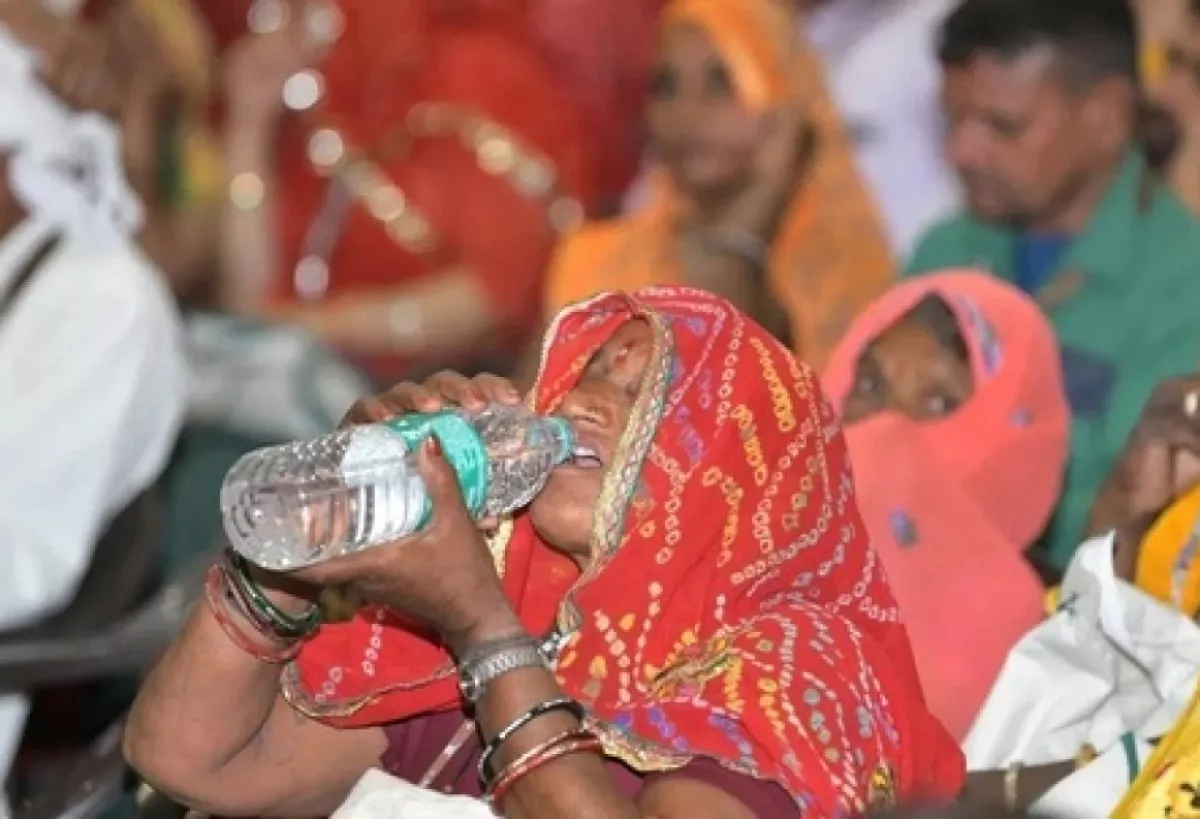
Indeed, this is "water for thought." What sets the current situation apart, however, is that in the past New Delhi never went beyond threats when it came to suspending the 1960 Indus Waters Treaty. That was the case, for instance, in both 2016 and 2019.
In the latter instance, the Indian government even floated the possibility of amending the treaty by suspending water sharing with Pakistan. The stated goal was to redirect part of the water flow to supply Indian states facing acute shortages—particularly Punjab, Jammu, and Kashmir—after June 2019 rainfall fell 35% below average. That month was recorded as one of the five driest in India in the last 100 years, raising fears of potential economic collapse.
More recently, in March this year, reports emerged forecasting higher-than-normal temperatures across much of India between April and June. This raised concerns about further water shortages, especially given the projected rise in electricity demand due to air conditioning and cooling needs.
There’s little need for added commentary here—except to underscore that while the suspension of the 1960 treaty had never been tested before, the idea has indeed been seriously discussed at the highest levels of India’s government.
At the same time, today’s events draw a clear parallel with developments in 2019, when a suicide bomber drove a vehicle laden with explosives into a police convoy in Kashmir, killing 40 people. As is the case now, India promptly blamed Pakistan for the attack without presenting any concrete or verifiable evidence. Islamabad categorically denied the allegations at the time, yet India responded by launching an airstrike on what it claimed was a major training camp operated by the group Jaish-e-Mohammed.
That same year, New Delhi revoked the autonomy of Jammu and Kashmir by dividing the state into two federally governed union territories—Jammu and Kashmir, and Ladakh. Pakistan maintains that these unilateral actions were rejected by the people of Jammu and Kashmir, which it describes as illegally occupied by India. According to Islamabad, Indian “occupation forces” have continued to violate human rights in the region through alleged war crimes, crimes against humanity, and acts of genocide.
Furthermore, Pakistan accuses New Delhi of spreading false propaganda to delegitimise the Kashmiri resistance and to cover up its unlawful actions. In response, Islamabad has reiterated its commitment to providing moral, diplomatic, political, and legal support to the people of Kashmir.
Notably, following the most recent terrorist attack, Indian authorities in Kashmir reportedly detained thousands of individuals for questioning. It is worth recalling that over 700,000 Indian troops are currently stationed in the territory, which local residents say deprives them of any semblance of a peaceful civilian life.
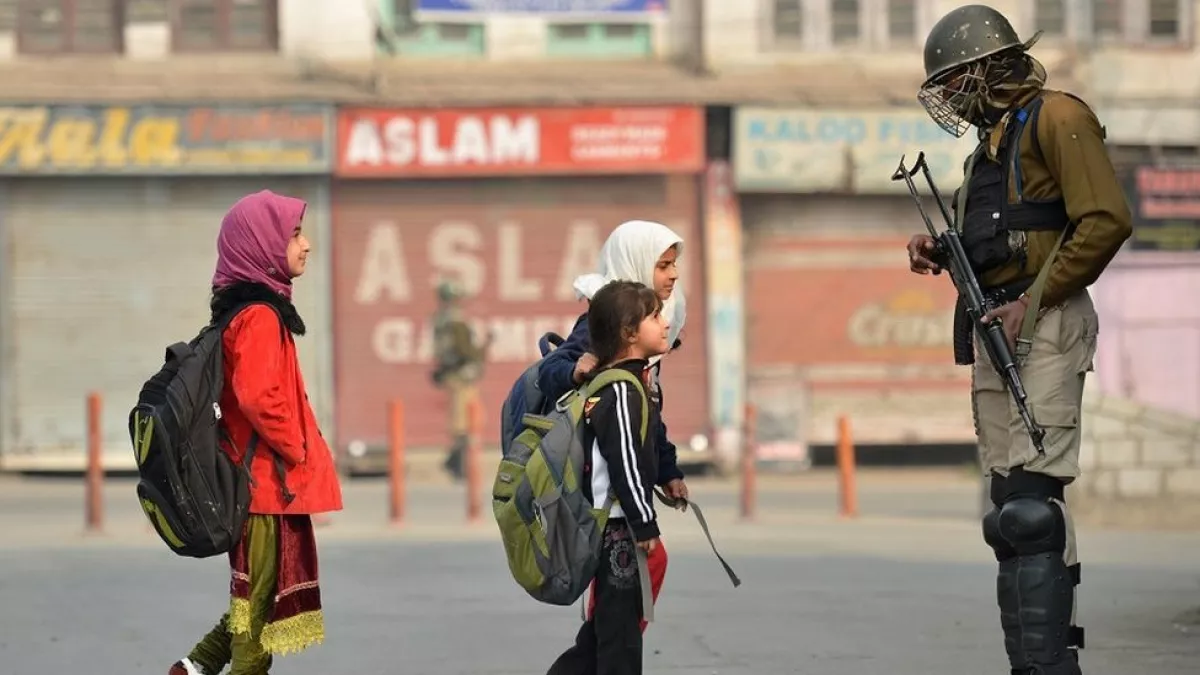
Islamabad has repeatedly called for a referendum in Kashmir—where Muslims make up the majority population—in accordance with UN resolutions, proposing either the region’s reintegration into Pakistan or the determination of its independent status. However, India has consistently refused to withdraw from the occupied part of the region, and the long-promised plebiscite—backed by the United Nations—has yet to take place.
Notably, in April of this year, the lower house of India’s parliament passed a controversial bill aimed at expanding the central government’s control over Muslim charitable endowments (waqf properties). The move sparked outrage, even among domestic political opponents. The opposition Indian National Congress (INC) strongly rejected the bill, labelling it unconstitutional and discriminatory against the Muslim community. “The Waqf (Amendment) Bill is a weapon aimed at marginalising Muslims and usurping their personal laws and property rights,” wrote former INC leader Rahul Gandhi on his X (formerly Twitter) account.
At the same time, the way the situation is unfolding clearly indicates that the escalation will not remain confined to a bilateral context, but will at minimum take on a regional dimension. A crucial nuance lies in the fact that one of the most important tributaries of the Ganges River—the Brahmaputra (Yarlung Tsangpo)—originates on the Tibetan Plateau, on the other side of the Himalayan range. This geographical reality makes India dependent on China's management of water resources—China being an unambiguous ally of Pakistan.
Five years ago, Beijing unveiled plans to construct a dam in the gorge, a project that received official approval in 2024. According to several sources, “the construction of the hydropower plant gives China virtually full control over the river, a significant portion of which flows through Indian territory.”
In general, a number of observers are convinced that India’s recent actions, particularly its anti-Pakistan stance, are primarily signals to China, which has significant economic ties with Pakistan. It is clear that New Delhi strongly reacted to the activation of the China-Pakistan Economic Corridor (CPEC) project, which began functioning in 2015. As noted by several experts, CPEC instantly transformed the Kashmir conflict from a bilateral issue (India and Pakistan) into a trilateral one (India, Pakistan, and China). Moreover, the corridor provides China with access through Pakistan’s Gwadar port to the Hormuz Strait, and subsequently to markets in South and Central Asia, as well as Western Europe. Gwadar, dubbed the “gateway” for China to the Indian Ocean, has become of utmost importance to China’s energy security and maritime routes.
In a broader geopolitical sense, the project is seen as a political and economic competitor to India’s growing alignment with the United States. From this perspective, the current confrontation between India and Pakistan is framed by some experts as a "proxy war" of the U.S. against China, with one of its hidden aspects being the threat to the China-Middle East oil route and the China-Europe link. It is no coincidence, then, that Chinese Foreign Minister Wang Yi, in a phone conversation with Pakistan's Foreign Minister Muhammad Ishaq Dar, emphasized that China, as a reliable strategic partner, “fully understands Pakistan’s legitimate security concerns and supports its efforts to protect sovereignty.”
Additionally, some journalists have pointed out another significant issue: the sharp decline in the political authority of Indian Prime Minister Narendra Modi, which has led him to begin preparing for the 2027 elections. According to several media outlets, Modi may require a triggering event that could artificially escalate tensions within the country. This tactic is nothing new, as it was already tested in 2019. As a result, experts do not rule out the possibility that New Delhi may once again attempt to "support terrorism on Pakistani territory" through what is claimed to be "financing operations" by the Indian government.
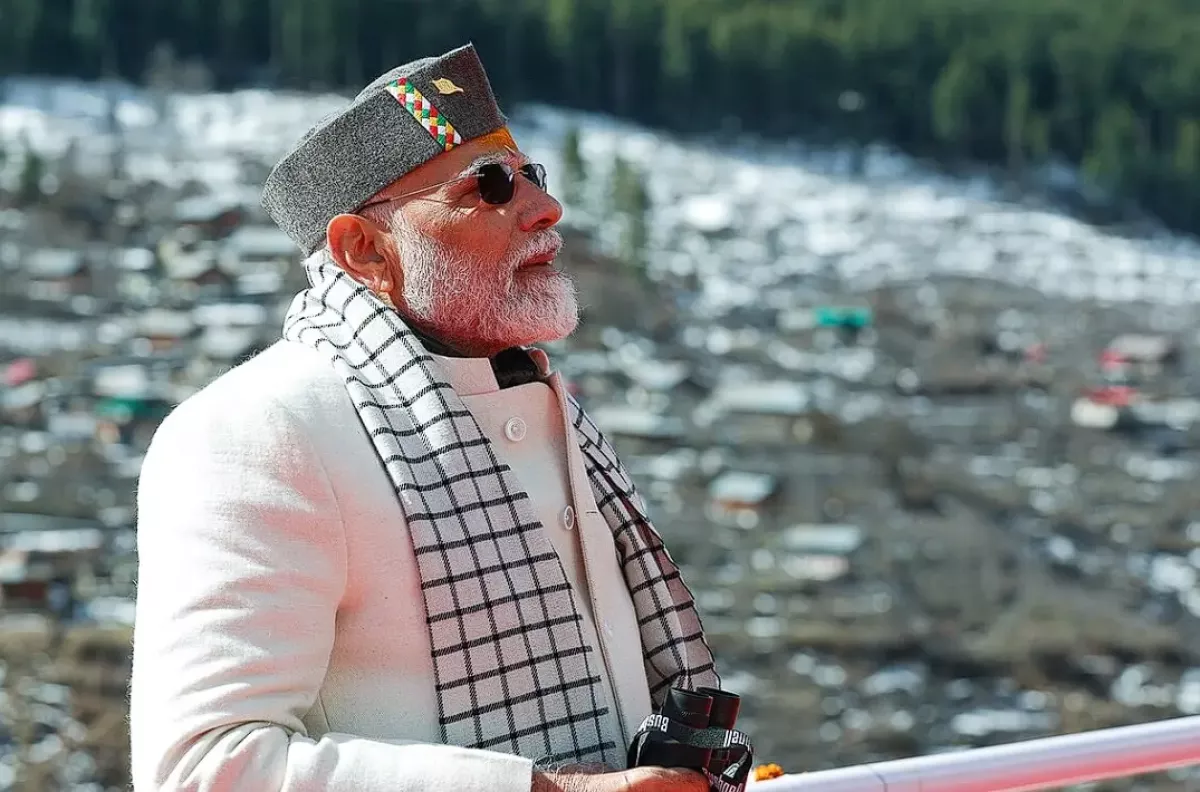
In this context, it is important to highlight that Pakistan, one of Azerbaijan's key strategic allies, recognised Azerbaijan's independence back in December 1991. Similar to Türkiye, Pakistan does not establish diplomatic relations with Armenia due to its aggressive stance toward Azerbaijan. In this vein, Baku has always supported Pakistan on the Kashmir issue. The foundation of the special spirit of Pakistani-Azerbaijani relations was laid by the national leader Heydar Aliyev, who emphasised that "the similarity of spiritual values, traditions, and customs of our peoples, alongside many other factors, has always brought us closer. With the restoration of Azerbaijan's independence, these ties have expanded even further and reached greater heights. We will continue to work on the development of Pakistan-Azerbaijan relations." Acknowledging this important aspect, Heydar Aliyev expressed gratitude to Pakistan for its initial support of Azerbaijan in its just struggle for the liberation of occupied territories, stressing that "when discussing the Kashmir issue in international organisations, Baku has always defended, and will continue to defend, Pakistan's position and its rights."
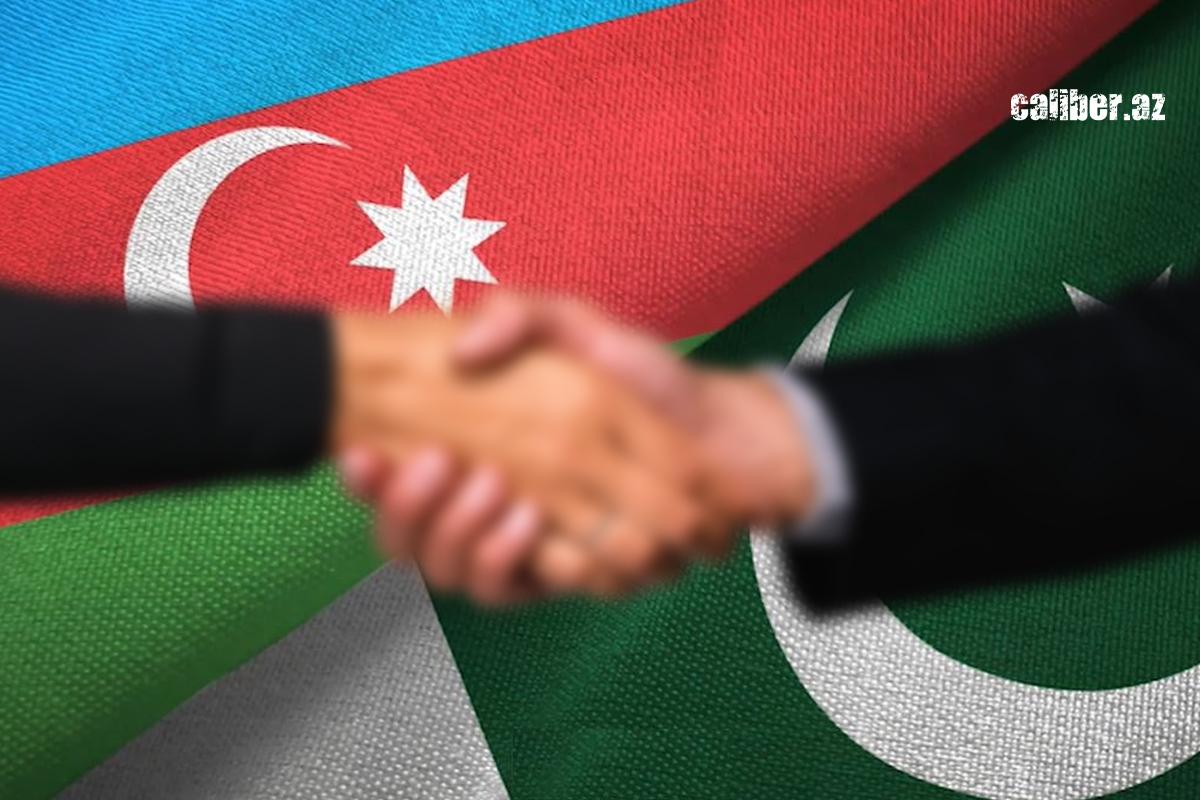
In 2015, President Ilham Aliyev, emphasizing that "the Azerbaijani and Pakistani peoples have lived for centuries in peace and friendship as brothers, supporting each other, and today are creating a new format of cooperation based on our historical heritage, traditions, religion, and strategic interests," further emphasized that Azerbaijan "always supports Pakistan on the Jammu and Kashmir issue, in accordance with the relevant UN documents." In 2021, the head of state expressed gratitude for the "full support provided by Pakistan to Azerbaijan during the Second Karabakh War in restoring our territorial integrity," calling it "a true example of brotherly ties."
This February, during the visit of Shehbaz Sharif to Baku, President Ilham Aliyev reaffirmed that, as two brotherly nations, the sides will continue to support each other "in all aspects of international relations, in matters of sovereignty and territorial integrity of our countries." Sharif, acknowledging that "Pakistan has always supported Azerbaijan's position on the Karabakh issue," expressed gratitude "for your support for the people of Kashmir, for your support of our just cause in the Kashmir issue without any political conditions, selflessly." He concluded, "Our brotherhood will live as long as this world exists."
In light of the above, it is clear that Azerbaijan is fully aware of the underlying dynamics in the current India-Pakistan situation. Islamabad can always count on Baku's brotherly support.








